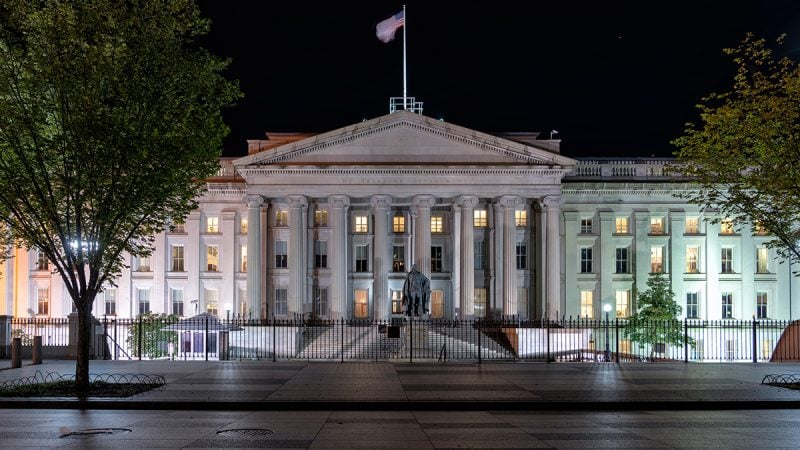
FinCEN Says Stablecoin Companies Must Observe Regulations
Another U.S. regulator is putting stablecoins under scrutiny.
The Financial Crimes and Enforcement Network has revealed its stance on stablecoins. Kenneth A. Blanco, director of the U.S. government body, has declared that stablecoins are a form of money transmission and must be regulated as such.
FinCEN’s stance is based on how stablecoins are used rather than their technical underpinnings. “It is not what you label it; it is the activity you actually do that counts,” Blanco stated on Nov. 15 at the Chainalysis Blockchain Symposium.
“This means that accepting and transmitting activity denominated in stablecoins makes you a money transmitter under the [Bank Secrecy Act],” Blanco continued. “It does not matter [what] the stablecoin is backed by … the rules are the same.”
What This Means For Stablecoins
Blanco noted that stablecoin administrators must register with FinCEN as Money Services Businesses . These businesses will also need to follow Anti-Money Laundering and Counter-Financing of Terrorism practices.
Presumably, this will have little effect on stablecoin companies that are already pursuing regulatory compliance, such as TrustToken and Circle. In fact, TrustToken has recently acknowledged that it complies with FinCEN’s money services rules.
However, FinCEN’s rules could complicate matters for decentralized stablecoins such as MakerDAO’s Dai, which does not have a central reserve. Since Dai is backed by individual crypto holders, MakerDAO has been able to avoid regulatory pressure so far.
Yet MakerDAO does have a few weak points: the company’s offices are located in California, and the project is considering the addition of fiat-based backing. These are two factors that FinCEN and other regulators could use to enforce the law.
It should also be noted that FinCEN’s rules apply to companies that merely handle stablecoins, such as exchanges, as well as companies that handle standard cryptocurrencies. Blanco’s statements mainly confirm that these same rules apply to stablecoin projects as well.
Other Perspectives On Stablecoins
FinCEN isn’t the only government body that has weighed in on stablecoins. Last week, the U.S. Federal Reserve suggested that stablecoins could be beneficial to the economy. The G20 Financial Stability Board has explored the matter as well.
Stablecoins are also under discussion internationally. China and Canada are both considering state-backed, digital currencies with fiat price pegs. Meanwhile, Facebook has been pursuing approval for its Libra stablecoin around the world with mixed results.
Though advocates of financial freedom may not support overregulation, stablecoins do not seem to be at risk. So long as stablecoins can maintain their price peg, they will remain useful in commerce and trading — whether they are regulated or not.
